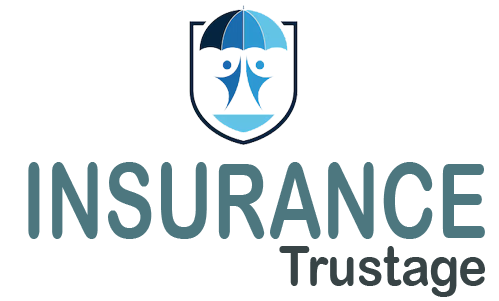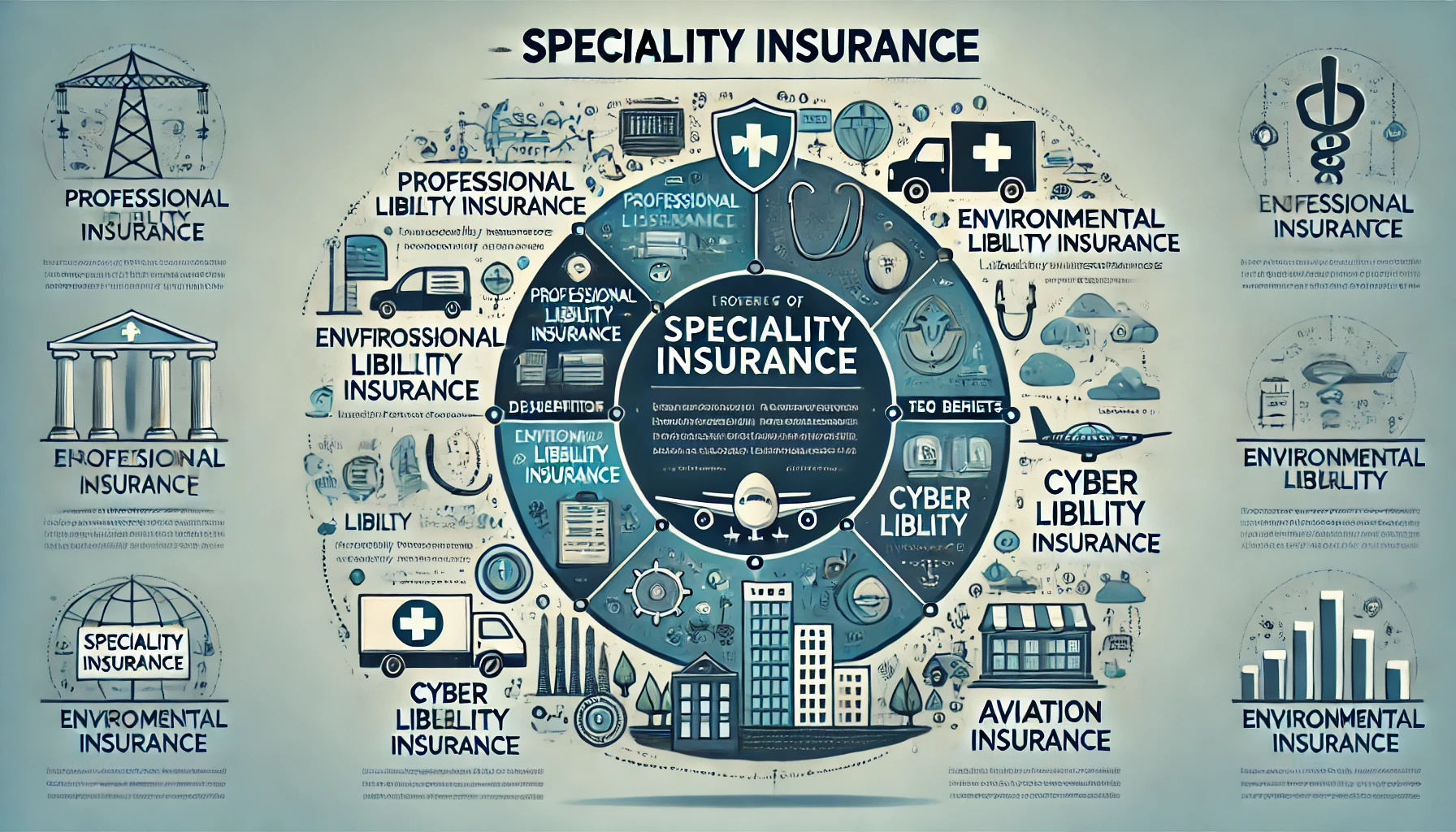What is Specialty Insurance, and Why is It Important?
Specialty insurance refers to coverage designed for unique risks that standard insurance policies may not adequately address. These policies are tailored to meet the needs of specific industries or situations, providing protection against uncommon but significant exposures.
Importance of Specialty Insurance
- Tailored Coverage: Specialty insurance provides customized solutions for unique risks. For instance, an artist may require coverage for artwork in transit, while a tech startup might need protection against data breaches.
- Risk Mitigation: By addressing specific exposures, specialty insurance helps mitigate potential financial losses. This is crucial in industries where standard policies may leave gaps in coverage.
- Peace of Mind: Knowing they have appropriate coverage allows business owners and individuals to focus on their core activities without worrying about unforeseen liabilities.
- Compliance: Some industries have regulatory requirements necessitating specific insurance coverages. Specialty insurance ensures businesses comply with these legal obligations.
- Market Stability: As businesses evolve and new risks emerge, specialty insurance helps stabilize markets by providing coverage for niche areas, promoting innovation, and allowing for growth.
How Does Specialty Insurance Differ from Standard Insurance Policies?
Understanding the differences between specialty insurance and standard insurance policies is essential for potential buyers.
Coverage Scope
- Standard Insurance: Policies like homeowners or auto insurance cover common risks and are broadly applicable across various demographics. They offer a set range of coverage limits and exclusions that apply universally.
- Specialty Insurance: In contrast, specialty insurance covers unique risks not typically addressed by standard policies. For example, specialty insurance might cover specific industry risks, such as the liability associated with drone operations or the unique risks faced by non-profit organizations.
Customization
- Standard Insurance: Standard policies often come with pre-defined terms and conditions, limiting flexibility. While there may be some options for riders or endorsements, the core structure remains the same.
- Specialty Insurance: These policies are highly customizable. Insurers can adjust coverage terms based on individual business needs, allowing for a more tailored risk management approach.
Premium Costs
- Standard Insurance: Premiums for standard insurance are generally more predictable, as they are based on broad statistics and risk pools.
- Specialty Insurance: Premiums for specialty insurance can be variable and may be higher due to the tailored nature of coverage and the unique risks involved. Insurers may also require more extensive underwriting to assess these risks.
Underwriting Process
- Standard Insurance: The underwriting process for standard policies is often straightforward, relying on established data and general risk assessment criteria.
- Specialty Insurance: Underwriting for specialty insurance is more complex and may involve detailed assessments of the insured’s operations, risk exposure, and industry-specific factors.
Who Should Consider Buying Professional Liability Insurance?
Professional liability insurance, also known as errors and omissions (E&O) insurance, protects professionals against claims of negligence, errors, or omissions in the services they provide.
Who Needs It?
- Healthcare Providers: Doctors, nurses, and other healthcare professionals face risks related to misdiagnosis, treatment errors, or failure to inform patients of risks.
- Legal Professionals: Lawyers can be sued for malpractice if they fail to perform their duties competently, leading to financial losses for their clients.
- Consultants and Advisors: Business consultants, financial advisors, and other professionals who provide advice can face claims if their guidance leads to client losses.
- Creative Professionals: Designers, writers, and marketing professionals may need coverage against claims related to intellectual property rights or contractual obligations.
- Technology Professionals: Software developers and IT consultants may face liability for data breaches or system failures that lead to client losses.
Why is Professional Liability Insurance Important?
- Financial Protection: Legal fees and settlement costs can be substantial, and professional liability insurance helps cover these expenses.
- Reputation Management: Having insurance in place can help professionals manage their reputation in case of claims, allowing them to respond effectively.
- Client Trust: Many clients require proof of professional liability insurance before engaging services, making it an essential consideration for professionals.
What Does Environmental Liability Insurance Cover, and Who Needs It?
Environmental liability insurance protects businesses against claims related to environmental damage caused by their operations, including pollution, contamination, and related legal expenses.
Coverage Scope
- Pollution Liability: Covers costs associated with the cleanup of contaminated sites and legal liabilities resulting from pollution events.
- Third-Party Claims: Protects against claims from individuals or entities that suffer damages due to environmental harm caused by the insured’s activities.
- Regulatory Compliance: Covers legal expenses incurred while complying with environmental regulations or responding to enforcement actions.
Who Needs Environmental Liability Insurance?
- Manufacturers: Industries that produce or handle hazardous materials are at higher risk for environmental claims and should consider this coverage.
- Construction Companies: Builders may face risks associated with soil contamination or improper disposal of hazardous materials.
- Real Estate Developers: Developers of residential or commercial properties may require coverage if contamination is discovered during development.
- Waste Management Companies: Firms that handle waste disposal or recycling face inherent environmental risks that necessitate robust liability coverage.
Importance of Environmental Liability Insurance
- Legal Protection: Environmental lawsuits can result in significant legal costs. This insurance helps manage those expenses and potential settlements.
- Business Continuity: Having coverage in place ensures that businesses can continue operating even after facing environmental claims.
- Regulatory Compliance: With increasing environmental regulations, this insurance helps businesses comply and avoid costly fines or penalties.
What Are the Key Benefits of Cyber Liability Insurance for Small Businesses?
As cyber threats become more prevalent, small businesses must understand the importance of cyber liability insurance. This coverage protects against data breaches and other cyber incidents.
Key Benefits
- Data Breach Protection: Coverage includes costs associated with data breaches, such as notification costs, credit monitoring services, and legal fees.
- Business Interruption Coverage: If a cyber event disrupts operations, this insurance can compensate for lost income during downtime.
- Third-Party Liability: Protects against claims from customers or partners affected by a data breach, covering legal expenses and settlements.
- Regulatory Compliance: Many jurisdictions have laws mandating notification of data breaches. Cyber liability insurance can help cover costs related to compliance.
- Reputation Management: In the event of a breach, insurers may offer services to help businesses manage public relations and restore trust with customers.
Who Needs Cyber Liability Insurance?
- Retailers: Businesses that process customer payments online are prime targets for cybercriminals and should consider this coverage.
- Healthcare Providers: With sensitive patient data at stake, healthcare providers must protect against data breaches that could lead to severe penalties.
- Technology Firms: Companies that develop software or manage IT systems face unique cyber risks and should invest in robust coverage.
- Small Businesses: All small businesses should consider cyber liability insurance, as they are increasingly targeted due to often lacking robust cybersecurity measures.
When is Aviation Insurance Required, and What Does It Protect Against?
Aviation insurance is essential for individuals and businesses involved in aviation activities. It provides coverage for aircraft and associated liabilities.
When is Aviation Insurance Required?
- Aircraft Owners: Anyone owning an aircraft must have aviation insurance to cover potential damages and liabilities associated with ownership.
- Pilots: Commercial pilots and flight instructors typically need insurance to protect against liabilities arising from their operations.
- Flight Schools: Institutions offering flight training must carry insurance to protect their aircraft and cover potential liabilities from student actions.
- Charter Services: Companies providing charter flights must have aviation insurance to protect their operations and comply with regulations.
What Does Aviation Insurance Protect Against?
- Aircraft Damage: Covers physical damage to the aircraft due to accidents, vandalism, or theft.
- Liability Coverage: Provides protection against third-party claims for bodily injury or property damage resulting from aviation operations.
- Medical Payments: Covers medical expenses for passengers injured in an aviation accident.
- Passenger Liability: Protects against claims from passengers who suffer injuries during flights.
- Hangar and Ground Risk: Covers damages occurring while the aircraft is parked or being operated on the ground.
Importance of Aviation Insurance
- Regulatory Requirement: Many jurisdictions require aviation insurance as a condition for operating aircraft, ensuring compliance with local laws.
- Financial Security: Aviation accidents can result in substantial financial losses. Insurance provides the necessary financial support to mitigate these risks.
- Peace of Mind: Pilots and aircraft owners can operate with confidence, knowing they have coverage in place for potential liabilities.
Conclusion
Specialty insurance plays a vital role in risk management, providing tailored coverage for unique exposures that standard policies may overlook. Understanding the nuances of specialty insurance—such as professional liability, environmental liability, cyber liability, and aviation insurance—enables individuals and businesses to make informed decisions about their coverage needs. As risks evolve, so must the approach to insurance, making specialty coverage an essential component of comprehensive risk management strategies.


